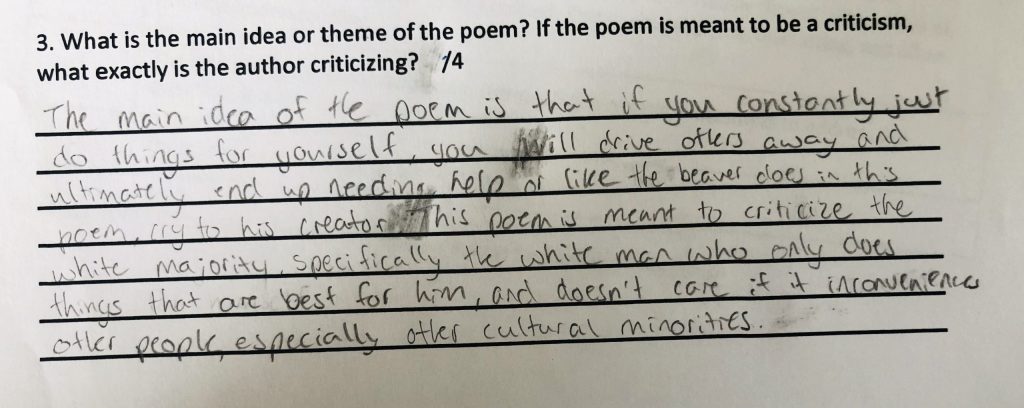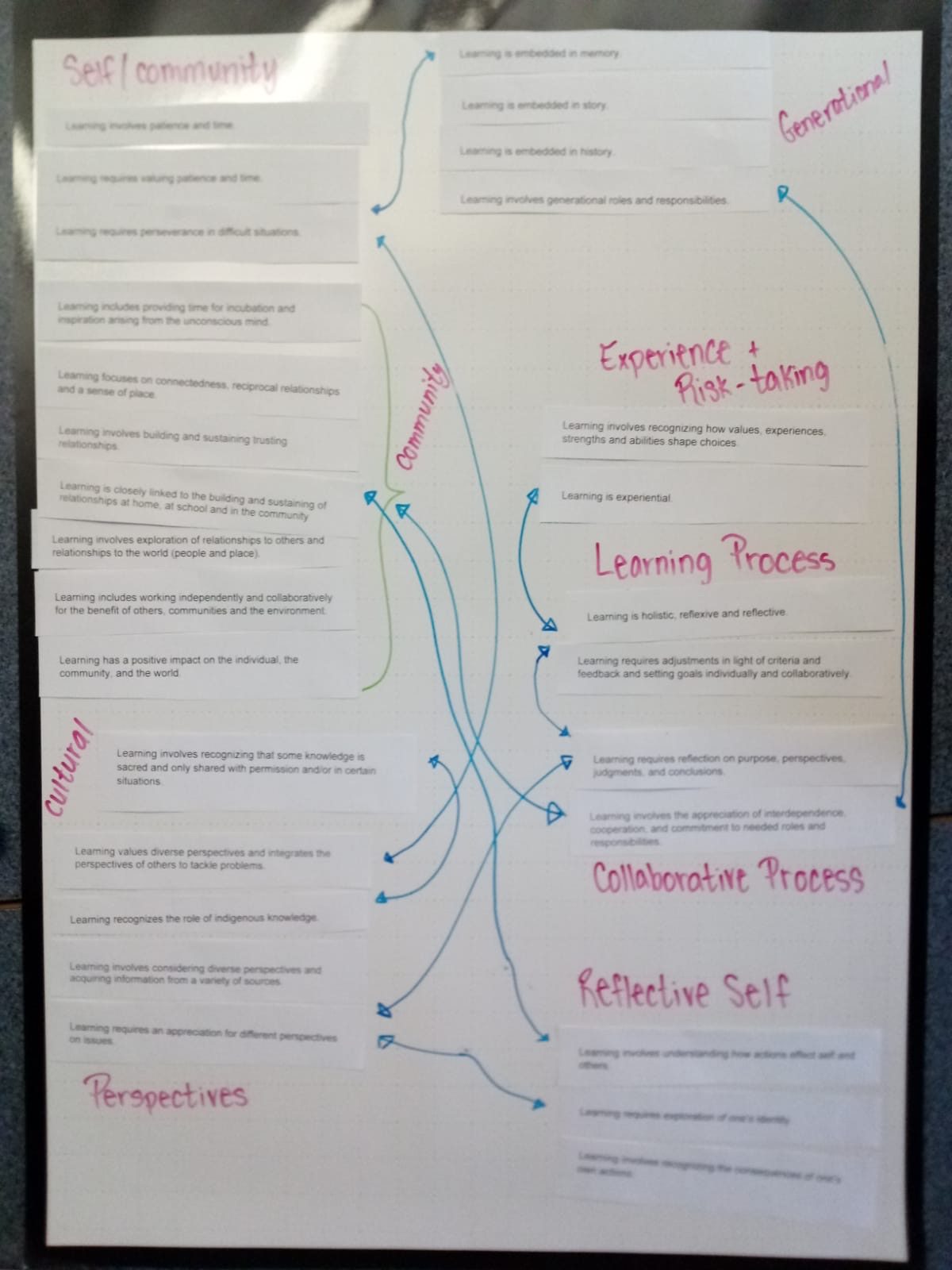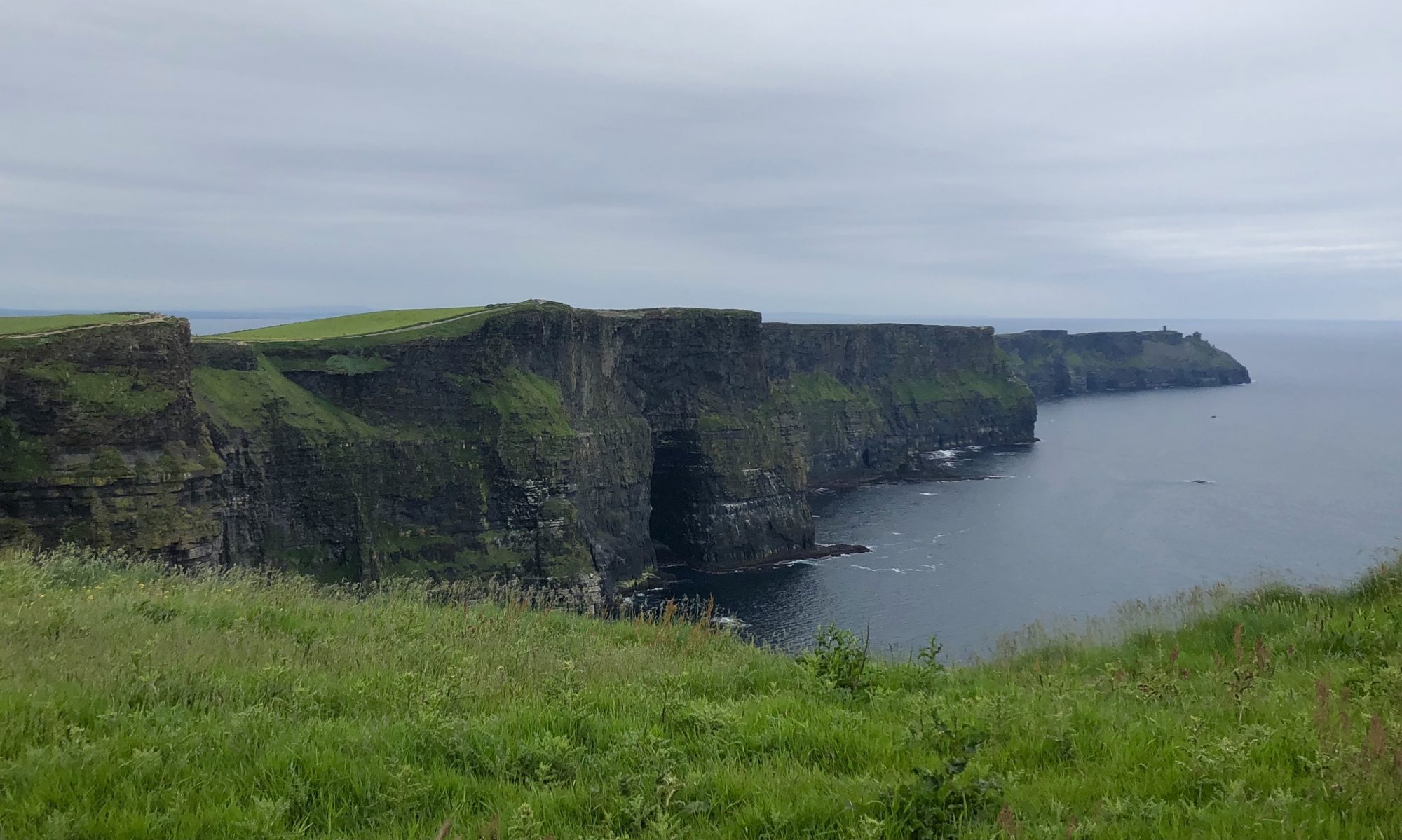Educators respect and value the history of First Nations, Inuit and Metis in Canada and the impact of the past on the present and the future. Educators contribute towards truth, reconciliation and healing. Educators foster a deeper understanding of ways of knowing and being, histories, and cultures of First Nations, Inuit and Metis.
A Poetry Unit with Indigenous Ties
My Literature Studies 11 poetry unit focused on Ecopoetry, which is poetry that typically has a strong ecological or environmental message. When I was initially choosing poems for this unit, I knew that I wanted to include several poems by Indigenous authors, as well as poems that emphasized the impact of the past on Indigenous peoples. One of the poems that we studied was “The Beaver,” by Duke Redbird. Redbird is an Indigenous author, and this particular poem of his asks the reader to consider what colonization has done, and uses the beaver as a metaphor for colonizers taking over. I ended up using this poem for an assessment, and students came up with some fantastic responses to one of my questions. Here is an example:

Understanding the First Peoples Principles of Learning on a Deeper Level
One way that I am trying to contribute towards truth, reconciliation, and healing, is through ensuring that I am working hard to embed the First Peoples Principles of Learning into my practice. In January, I attended an Indigenous Day of Learning professional development session on connecting the First Peoples Principles of Learning to the Core Competencies. I was intrigued by the idea that the two could be connected, and was excited to attend this workshop. The ultimate task in the workshop was to sort the Core Competencies and First Peoples Principles of Learning into similar categories. Then, we had to frame the categories.

The group that I was in found that the Competencies and the First Peoples Principles of Learning could be sorted into similar categories of: Self/Community, Cultural, Perspectives, Generational Roles, Experience & Risk-Taking, the Learning Process, the Collaborative Process, and the Reflective Self; however, this does not mean that each category exists on its own. We found that each of the categories was connected in some way, hence the arrows.
This was ultimately important for me to learn, because it furthered my own understanding of how I could embed the First Peoples Principles of Learning into my classroom while also responding to the Core Competencies. This is because the First Peoples Principles of Learning emphasize how learning takes place, and the Core Competencies provide a framework for improving students’ roles as learners. After I attended this workshop, I found myself planning each of my lessons with the thought of how the First Peoples Principle of Learning that I wanted to embed could connect to the Core Competency I was going to focus on. This is one way that I am contributing to Truth and Reconciliation.
